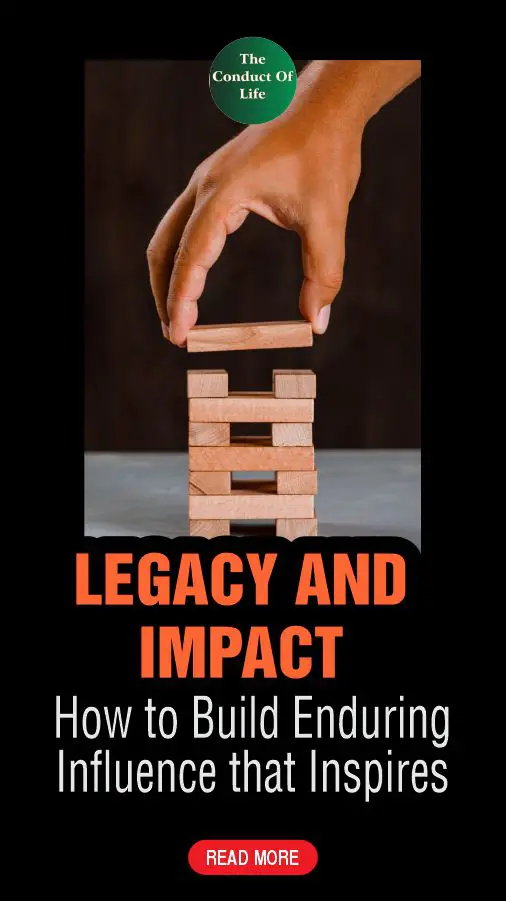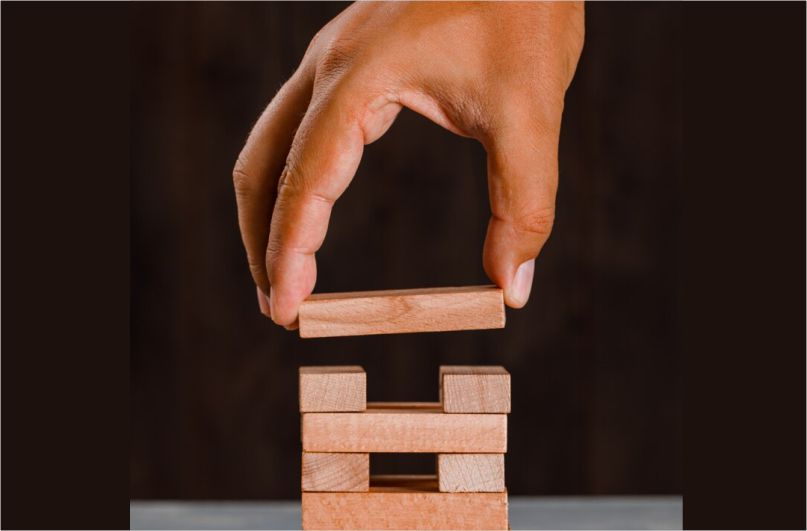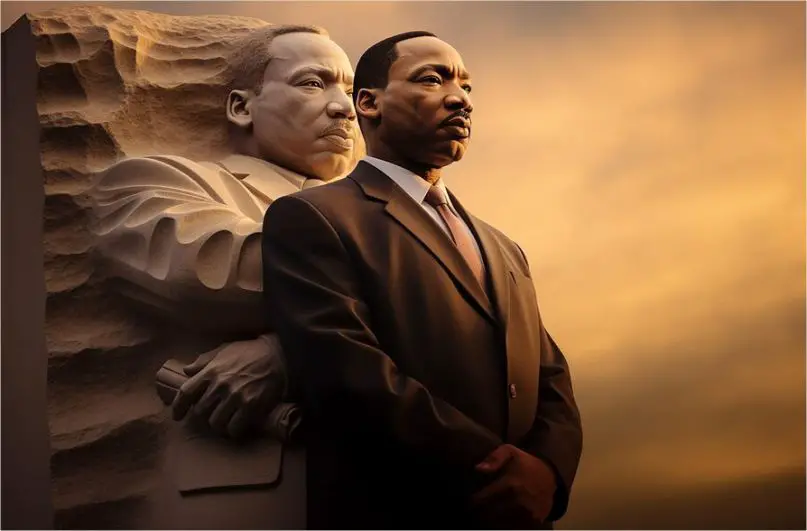Wondering what you’ll leave behind? Your legacy and impact extend far beyond wealth; it’s the mark you make on people, work, and society. Discover how to create lasting change that echoes through generations
Every choice, action, and conversation shapes how others remember you.
Will your impact fade, or will it inspire future generations? Legacy isn’t built overnight; it grows through the values and daily habits you live by and the influence you have.
Whether through being a leader, mentorship, or community work, your impact starts now.
Are you creating something that lasts? Let’s discuss in detail how to shape a meaningful legacy that extends beyond your lifetime, leaving a lasting impression on the world around you.
New to having a life of direction and purpose? See our article on defining a purposeful life.

What is Legacy and Why Does it Matter?
Legacy is the lasting influence you leave on others through your actions, values, and contributions, shaping how you’re remembered long after you’re gone. But legacy is more than material things like wealth or fame.
It’s the way you shape lives, the values you pass down, and the impact you make through your words and actions.
Your legacy is being created daily, in how you treat people, share knowledge, and create memories.
Every kind word, lesson, and habit shapes how you’ll be remembered, proving everyone can leave a meaningful imprint, measured not by wealth, but by the lives touched.
The Different Types of Legacy
Legacy takes many forms, each leaving a unique imprint on the world. It is not confined to one aspect of life; rather, it extends across different areas, shaping people, communities, and cultures.
Personal Legacy
Personal legacy is the lasting impact you leave on others through your actions, values, and relationships.
It reflects how you want to be remembered and the lessons you pass down to future generations.
Family Legacy
What values and wisdom will your children carry forward? Family legacy is built through life lessons, morals, and nurtured bonds.
It’s not just genetics, but wisdom and habits passed down. Small things define traditions: shared meals, phrases, or conflict resolution.
These shape future generations’ thoughts and actions. A strong family legacy ensures love and resilience live on. More on the family legacy.
Professional Legacy
The workplace is where you imprint on colleagues and industries. Your work ethic and leadership shape how others build upon your contributions.
Think of inspiring teachers or innovating entrepreneurs. Their influence lives on in others’ careers. As an employee or leader, your example becomes part of your professional legacy.
Philanthropic Legacy
A philanthropic legacy stems from service and generosity; even small acts transform lives, creating ripples of impact through volunteering and charitable acts that extend beyond your lifetime.
Cultural Legacy
A cultural legacy preserves identity through art and traditions. Books and practices that encourage belonging shape perspectives, inspiring future generations and ensuring traditions endure, even if you’re not an artist yourself.
Digital Legacy
A digital legacy is the lasting presence and influence you create online through social media, digital content, and professional achievements.
It includes your online reputation, shared knowledge, and contributions, impacting how others perceive you long after you’ve moved on. Your digital footprint can shape your legacy for future generations.
Related Posts
What are the Core Principles of Life?
What are Leadership Legacy and Legacy Leadership?
Building a Strong Legacy: Start with a Solid Foundation

When you’re thinking about your legacy, it’s important to begin with a strong foundation.
Your core values and principles guide your choices and shape your actions, allowing you to create an impact that lasts long after you’re gone.
These values act as your compass, helping you align what you do with what you hope to achieve, ensuring that your life leaves a meaningful mark.
Having a Long-Term Vision and Purpose
A key part of building your legacy is having a clear vision for the future. This long-term perspective allows you to make daily decisions that align with your larger goals.
Whether you’re focused on your family, career, or community, a solid purpose makes it easier to see how your actions fit into your broader impact.
Intentions Matter: What Are You Aiming For?
It’s not exclusively about setting goals but includes understanding how your actions connect to those goals.
Legacy is not just the result; it’s also about how well your daily efforts align with your long-term vision.
When you can see your objectives in action, it helps you stay focused and motivated.
Checking in on your intentions and adjusting them as necessary keeps your efforts on track for a meaningful impact.
Adapt and Reflect: Your Legacy Will Evolve
Your values will change as you grow. That’s why regular reflection is key to maintaining a legacy that stays relevant.
Being flexible in your principles allows you to continue influencing others and adapting to new challenges.
A legacy shouldn’t be static; it is a process of growth that evolves and continues to inspire the next generation.
The Balance of Action and Intention
In the end, your legacy is a combination of clear intentions and consistent actions.
By staying true to your purpose while adjusting to change, you build something lasting and impactful.
Your legacy will not only reflect who you are but also how your principles influence those around you.
By keeping these core elements in mind, you can create a legacy that extends beyond your personal life, impacting your family, community, and the world.
Related: What are Legacy Statements and Letters?
What is Impact?

Impact is simply the effect or influence that your actions or choices can have on others, a community, or even the environment. It’s the way your decisions can create change, whether in the short term or over a longer period.
Short-Term vs. Long-Term Impact
There are two main types of impact: short-term and long-term. Short-term impacts are immediate and easy to see, like helping someone directly.
Long-term impacts take more time to show, but they often shape people’s beliefs or circumstances in lasting ways.
You may not see the full results of your actions right away, but over time, the difference you make can become clearer.
Direct and Indirect Impact
The impact can also be direct or indirect. Direct impact is straightforward, like donating to a cause and seeing the immediate results.
Indirect impact, on the other hand, is less obvious but just as powerful. For example, a decision made by a leader might inspire others to take action, creating a ripple effect of change.
The question arises: Can you make an impact without leaving a personal legacy?
While your actions can create visible effects, a lasting legacy usually comes from those actions continuing to influence others in meaningful ways.
The Psychology of Impact and Legacy

The psychology of legacy and impact revolves around the human desire to leave a lasting mark on the world.
Many people feel fulfilled when they contribute to something greater than themselves.
This sense of purpose comes from knowing that your actions matter, not just for now, but for the future.
It is driven by the need for meaning, significance, and recognition. People often seek to create a legacy through accomplishments, relationships, and contributions to society.
This desire is tied to self-esteem, the need for purpose, and the fear of being forgotten.
Psychologically, leaving a legacy fulfills the longing for immortality, providing you with a sense of continuity and connection to future generations.
The impact of your actions is often measured by how others perceive and remember them.
Measuring Impact
To truly understand how effective your actions are, you need a way to measure their impact.
Whether it’s on a personal level or within a community, tracking your influence helps you evaluate if you’re achieving your goals and leaving behind something meaningful.
Theory of Change: Mapping Your Path to Impact
A great tool to measure impact is the Theory of Change. This framework helps you map out your goals and the steps you need to take to achieve them.
By identifying specific indicators, like changes in behavior or increased engagement, you can track the progress of your efforts.
For example, if you’re running a community program, you might look at how many people are participating, how satisfied they are, and whether their attitudes or behaviors change over time.
These insights give you a clear view of the legacy you’re building.
Using Key Performance Indicators (KPIs)
Key Performance Indicators (KPIs) are another effective way to measure your impact.
These metrics help you quantify your success. In business, for example, KPIs might include financial growth or customer satisfaction.
When your impact is about more than just profits, like promoting social change or community well-being, KPIs help you track how well you’re balancing both.
Qualitative Feedback: The Human Element
Numbers are important, but understanding the human side of your impact is just as valuable.
Interviews, surveys, and focus groups can offer deep insights into how your actions have affected people on a personal level.
These qualitative insights help round out the picture, showing how your efforts are truly making a difference. See a comprehensive guide on measuring the impact of legacy.
The Ripple Effect of Impact
The ripple effect is the idea that small, consistent actions can create far-reaching consequences.
Just like when a pebble is dropped into water, your actions can have an impact that spreads, affecting communities and even society in ways you might not immediately see.
This is especially important when it comes to building a meaningful legacy, where small contributions add up to something much bigger over time.
Small Actions, Big Impact
Think about a teacher who goes the extra mile for their students. By providing support and encouragement, they don’t just help students learn; they inspire them to chase their dreams.
Over time, those students could become leaders, innovators, and changemakers.
In this way, the teacher’s influence doesn’t stay within the classroom, it spreads, creating a long-lasting legacy of education and progress.
Community Engagement: The Power of Collective Action
Even the smallest acts in a community can snowball into bigger, more impactful changes.
Whether it’s organizing a local cleanup or volunteering at a shelter, these actions can inspire others to get involved.
As more people join in, a culture of civic engagement grows, strengthening the community’s social bonds.
This is a key part of legacy planning: your actions contribute to something larger than yourself, creating a collective effort for positive change.
Social Media: Amplifying Your Influence
In today’s digital world, the ripple effect of your actions can be felt much further.
A single post on social media advocating for a cause can be shared globally, inspiring others to take action, whether it’s donating, raising awareness, or joining a movement.
The speed at which information spreads online shows how the line between legacy and impact can blur.
One person’s message can influence thousands, driving real social change.
Your Ripple Effect: Start Small, Think Big
The ripple effect shows you that even the smallest actions can lead to big changes.
Whether it’s helping one person or starting a larger movement, your actions can build a legacy that spreads far beyond what you see.
By staying consistent and purposeful, you can create an impact that resonates throughout your community and even the world.
The Intersection of Legacy and Impact

The connection between legacy and impact is key to understanding how meaningful contributions leave a lasting mark.
Your legacy is the impression you leave behind, while impact refers to the measurable effects of your actions on society.
The strongest legacies often come from the actions you take that create real change, shaping the world for years to come.
Legacy through Impactful Actions
When you look at historical figures like Martin Luther King Jr., Mahatma Gandhi, or Nelson Mandela, their legacies were built through impactful actions, those driven by a desire to create lasting social change.
These leaders didn’t just make waves during their lives; they set in motion movements that are still felt today.
Their legacies weren’t based on personal ambition but on genuine contributions to humanity, showing how true impact leads to a legacy that endures.
Action Over Ambition: Why Your Intent Matters
If your focus is only on leaving a legacy without meaningful actions, it may eventually fade into obscurity.
A legacy built on self-interest, without any effort to make a real difference, can easily be forgotten.
In contrast, a life shaped by genuine intent and impactful actions creates a legacy that stays relevant.
Your legacy is stronger when your contributions truly resonate with others, leading to change that lasts.
The Cycle: Impact Fuels Legacy, Legacy Inspires Action
Think of the environmental movement sparked by Rachel Carson’s work.
Her advocacy didn’t just lead to immediate change, it ignited a long-term shift in how we think about the environment.
The ripple effect of her impact continues to inspire future generations to take action.
The cycle is clear: impactful actions contribute to the formation of a lasting legacy, and that legacy motivates others to keep pushing for change.
Your actions today shape the future and inspire those who follow you.
Creating a Meaningful Legacy Through Impact
Creating a legacy that matters is more than just thinking about personal achievements.
It’s about understanding how your actions can affect future generations.
The key to this is personal growth and self-development, these help you gain the life skills and insights needed to drive meaningful change.
By embracing continuous learning and self-reflection, you can better assess how your legacy connects with the broader community and the world around you.
The Power of Leadership in Building a Legacy
Leadership is central to shaping history. Leaders who live by their values and vision often create a legacy that outlasts their time in power.
When you inspire innovation and motivate others to act, you’re building a lasting influence.
By collaborating and mentoring, you amplify not only your legacy but also the impact of those around you.
Strong leadership doesn’t just change the present, it has a ripple effect that echoes through generations. See how to use legacy leadership to build leadership legacy.
Building a Business Legacy
Creating a business legacy goes beyond profit. It’s about embedding ethical practices and social responsibility into your company’s core.
When a company prioritizes its commitment to its community and the environment, it establishes a legacy that stands the test of time.
A business that values its stakeholders and operates with integrity earns a reputation that resonates with consumers, ensuring that its impact extends well beyond the bottom line.
Digital Legacies in a Connected World
In the modern society, digital footprints matter more than ever. Your online actions are permanent, and they help shape the narrative of your legacy.
Being aware of your digital presence is key to leaving an impact that reflects your true values.
Whether you’re sharing your thoughts on social media or contributing to an online cause, your digital legacy is an important part of the story you leave behind.
Instilling Family and Generational Values
A meaningful legacy isn’t just for you, it’s for future generations. Teaching your family values and creating shared experiences can strengthen your legacy over time.
Storytelling and connecting through family traditions help establish a sense of identity that can influence your lineage for years to come.
By passing on your values, you ensure that your impact continues through the generations.
Challenges in Building a Lasting Legacy and Impact
Building a legacy that matters isn’t easy. Along the way, you’ll face several challenges that can make it hard to stay on course.
Understanding these obstacles can help you overcome them and keep moving toward a meaningful impact.
Overcoming Self-Doubt
Self-doubt is a major hurdle. You might question your ability to create your envisioned legacy or struggle with impostor syndrome.
To overcome this, recognize your strengths and accomplishments. Acknowledging your skills can shift your self-perception and build confidence.
This is needed to plan for a lasting impact and move forward effectively.
Balancing Personal and Professional Life
Balancing career, family, and personal goals can be overwhelming, spreading your focus thin and hindering your ability to create a lasting impact.
Strategic time management and prioritization are key to avoiding burnout. Set clear, achievable goals in each area of your life to ensure your efforts contribute to your desired legacy.
Dealing with Criticism and Public Perception
Building a legacy may bring criticism. Fear of judgment can stop you from being true to yourself.
Focus on your purpose and the positive change you want to make, rather than seeking validation.
Staying grounded in your values and authentic to your mission helps maintain focus amid external pressures. A supportive community is key.
Staying True to Your Values
The road to a meaningful legacy is filled with obstacles, but staying true to your mission makes it worthwhile.
Regularly check in with your values and reflect on the impact you want to have.
This will keep you aligned with your purpose and give you the strength to overcome any challenges you encounter.
How to Build Your Legacy and Maximize Impact

Building a lasting legacy starts with understanding your mission and vision.
This clarity will help you make decisions and take actions that align with the kind of impact you want to leave behind.
Here’s how you can turn your vision into a meaningful legacy.
1. Define Your Mission
The first step is to get clear on your mission. Reflect on what matters most to you, your values, passions, and the contributions you want to make in the world through the conduct of your life.
Write down what you stand for and what kind of legacy you want to leave.
This will become your mission statement, which will guide all your actions moving forward.
2. Identify Your Strengths
Everyone has unique qualities that can help them build a legacy. Take the time to identify what you do best.
Is it leadership, creativity, problem-solving, or something else? By recognizing your strengths, you can use them more effectively to create an impact.
This might involve learning new skills, seeking feedback, or applying your strengths to different situations, both personally and professionally.
3. Document Your Journey
Track your progress as you work toward your legacy. Keep a journal or start a blog to reflect on your challenges, wins, and everything in between.
Writing about your journey not only helps you grow but also creates a resource for others.
Sharing your experiences can inspire and guide those who come after you, building a stronger narrative around your impact.
4. Invest in Mentorship
Mentorship is one of the most powerful ways to expand your legacy. By helping others grow, you’re not only shaping their future but also ensuring your values and impact live on.
Whether it’s mentoring someone in your field or guiding a young person in your community, this act of giving back multiplies your influence, ensuring that your legacy continues long after you’re gone.
5. Take Consistent Action
Building a legacy isn’t something that happens overnight. It requires steady, consistent effort.
Break down your big goals into manageable steps and take action regularly.
The more you act in line with your mission, the more your legacy will grow and resonate over time.
The Role of Community in Legacy and Impact
Community involvement is key to shaping both your legacy and a broader collective impact.
When you actively engage with others, you build more than just relationships, you help create a lasting impression that goes beyond your achievements in the conduct of your life.
Here’s how being part of a community can shape your legacy and expand your impact:
1. Collaborating for Greater Impact
One of the biggest benefits of community engagement is the ability to tap into different perspectives and skills.
When people come together, they combine their strengths and ideas, making projects more powerful than if you worked alone.
These collaborations not only amplify the outcomes but also enhance your legacy.
By contributing to something bigger than yourself, you create a lasting influence that aligns with your values.
2. Building a Legacy Through Service and Activism
Community service and activism are two powerful ways to build a meaningful legacy.
Whether it’s through volunteering, participating in local causes, or organizing events, dedicating your time to address challenges in your community can create lasting change.
Your efforts become part of a bigger picture, shaping the future for others.
These contributions leave a long-term mark on both your legacy and the people around you.
Examples like:
- Mentoring programs
- Charity work, and
- Environmental campaigns
…show how collective efforts lead to widespread change. These initiatives highlight the importance of contributing to the well-being of your community and ensuring that your impact lasts for generations.
3. Strengthening Your Reputation
When you’re known for giving back to your community, it builds your reputation in ways that go beyond career or personal success.
People admire and respect those who actively contribute to the common good, and this can inspire others to take action too.
As more people get involved, the collective impact grows, creating a cycle of positive change that strengthens both your legacy and the community you’re part of.
4. A Cycle of Positive Change
The relationship between community and legacy is reciprocal. When you make an impact on your community, you not only contribute to its growth, but you also nurture your personal growth.
Your legacy, shaped by your actions, then elevates the community, encouraging further contributions and progress.
This ongoing cycle creates lasting, meaningful change that benefits everyone involved.
Real-Life Examples of Legacy and Impact
Throughout history, numerous individuals have successfully built a legacy through impactful actions, showcasing the profound connection between their choices and the lasting influence they have imparted on society.
Martin Luther King Jr.

One prominent example is Martin Luther King Jr., whose commitment to civil rights and social justice has left an indelible mark on the world.
His leadership and advocacy for equality are still celebrated today, as his legacy inspires ongoing movements for justice and change, illustrating how a single person’s vision can create an enduring impact.
Marie Curie
Another notable figure is Marie Curie, whose groundbreaking research in radioactivity not only advanced the field of science but also paved the way for subsequent generations of female scientists.
Curie’s dedication to her work and her relentless pursuit of knowledge exemplify how creating an impact in one’s field can lead to a meaningful legacy in both scientific and educational realms.
Her achievements demonstrate the importance of establishing a legacy that fosters future advancements and empowers others to contribute to society.
Nelson Mandela
One cannot overlook the contributions of Nelson Mandela, whose fight against apartheid in South Africa exemplifies how a personal legacy can transform a nation’s future.
His tenacity and commitment to reconciliation and social justice has resonated globally, serving as a testament to how meaningful actions can unify and inspire people to strive for change.
Mandela’s life impact showcases the power of leadership in building a reputation that transcends generations and leaves a lasting legacy.
These examples highlight the significance of legacy planning; they reveal how history remembers those who dared to create an impact and leave a lasting legacy.
By examining such illustrious figures, you can glean wisdom on how to leave a legacy that resonates into the future, demonstrating the enduring importance of making impactful choices in the conduct of your life.
Frequently Asked Questions
What is legacy?
Legacy refers to the lasting influence you leave on others through your actions, values, and contributions to society.
How can I start building my legacy?
Begin with core values and clear intentions, aligning daily actions with long-term vision and purpose for meaningful impact.
What is the difference between impact and legacy?
Impact refers to the effects of your actions, while legacy is the lasting memory and influence you leave behind.
Why does leadership matter in creating a legacy?
Leadership guides others through actions and vision, amplifying your impact and ensuring your contributions create lasting change.
Conclusion
Your legacy is the lasting mark you leave on the world, shaped by your actions, values, and contributions.
It’s not just about wealth or fame, but the impact you make on individuals, communities, and society.
From family to profession to philanthropy, every choice, habit, and relationship plays a part in creating a meaningful legacy.
By reflecting on your purpose and consistently aligning your actions with your values, you can build an enduring legacy.
Remember, your influence doesn’t end with you, it ripples out, inspiring and shaping future generations for years to come.
Pious Clements is the insightful voice behind "The Conducts of Life" blog, where he writes about life ethics, self-development, life mastery, and the dynamics of people and society.
With a profound understanding of human behaviuor and societal dynamics, Pious offers thought-provoking perspectives on ethical living and personal growth.
Through engaging narratives and astute observations, he inspires readers to navigate life's complexities with wisdom and integrity, encouraging a deeper understanding of the human experience and our place within society.
